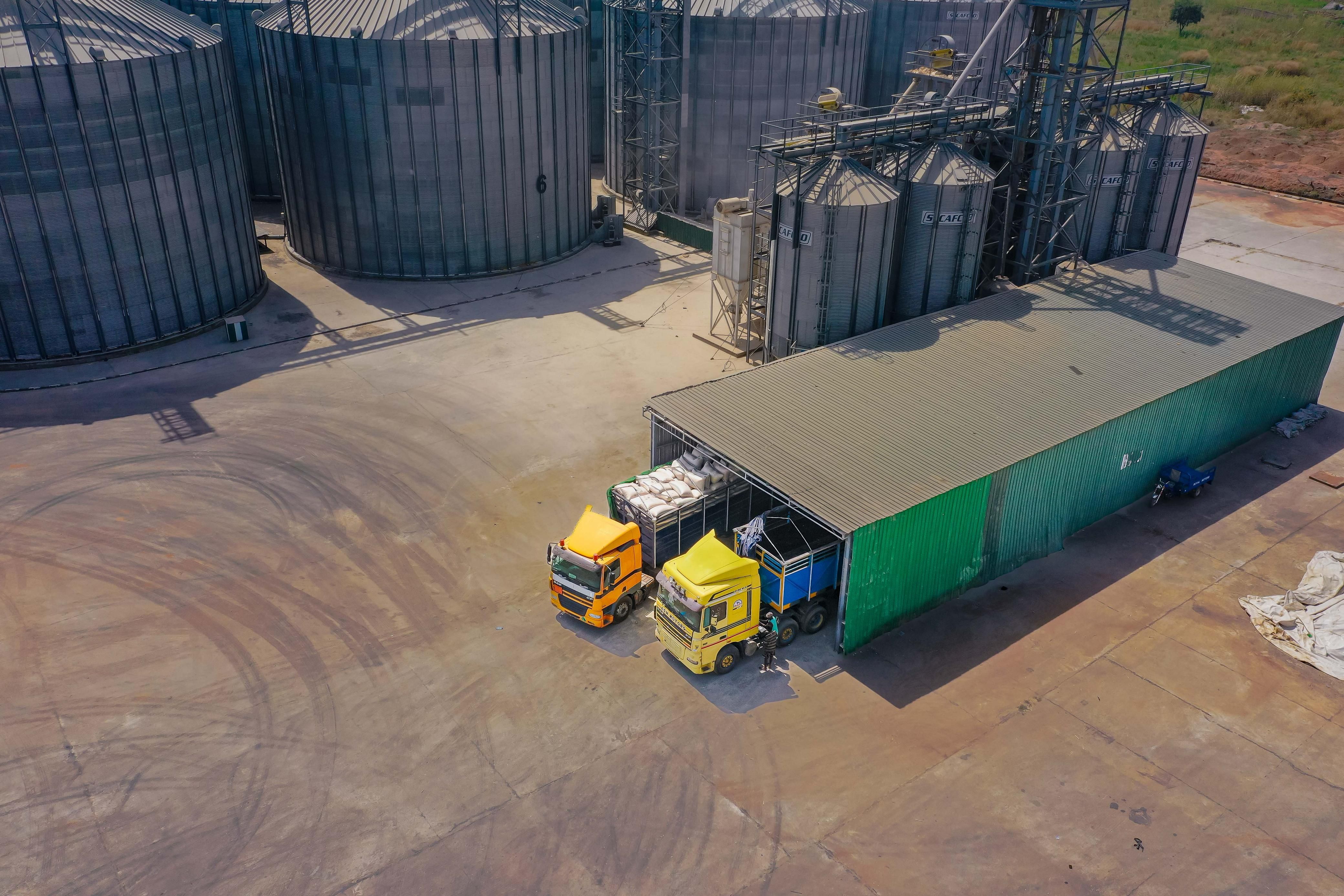Reading time:5 min read
Unlocking Nigeria's Agricultural Export Potential
In Q1 2024, Nigeria's exports reached a total value of ₦19,167.40 billion, with crude oil leading the pack at a significant ₦15,486.63 billion. Non-crude exports in Q1 2024 stood at ₦3,680.73 billion, with exports of agricultural goods amounting to ₦1,035.02 billion of the stated. This highlights crude oil as accounting for a total of 80.80% of Nigeria's Q1 2024 exports, emphasizing the ongoing reliance on crude oil exports, despite efforts to diversify the economy.

Increasing Nigeria’s export of agricultural commodities positions Nigeria to effectively diversify her revenue base and reduce demand pressure on scarce FX. To strengthen the Naira against the dollar, demand for the currency must be created by increasing the share of naira-denominated exports, especially in agriculture. Nigeria's trade deficit ballooned to NGN1.94trn in 2021, compared to 2020's NGN178.3bn. This widening gap is due to high import costs exceeding export value, a trend linked to oil price slumps (2015, 2016, 2020) and Nigeria's reliance on raw commodity exports, leading to lower earnings. Also, Nigeria's trade relies heavily on exporting raw materials and importing finished or partially finished goods. This pattern has historically led to unfavorable terms of trade, hindering economic growth. To improve, Nigeria needs to diversify exports and focus on value-added products for greater returns.
If Nigeria must boost its export business through agriculture, these identified mitigants must be addressed:
-
Low agricultural financing and investment Over the years, agriculture has been starved of investment and the right financing to boost activities across the value chain. Nigeria’s budget for agriculture falls short of the prescribed 10% of the annual national budget standard set by the Maputo Declaration on Agriculture and Food Security.
-
Inadequate storage facilities and poor distribution network In Nigeria, an estimated 30 million metric tonnes of grains and oilseeds are produced each year, however, the country has only 1.8 million metric tonnes of warehouse capacity storage. With about 47% of farmers having zero access to any kind of storage facilities during harvest season, it is estimated that post-harvest- losses claim 15% of farmers’ output, costing Nigeria about N3.5 trillion (over US $8 billion) each year.
-
Poor quality of agricultural products for exports In May 2023, the National Agency for Food and Drugs Administration and Control, NAFDAC, complained that over 70 percent of agricultural exports were rejected abroad. Several challenges plague Nigeria's agricultural exports, leading to low-quality commodities. These include poor handling practices throughout the planting and harvesting cycle, vulnerability to crop diseases and pests, and an overreliance on pesticides for preservation. With growing globalization and increasing emphasis on the quality of agricultural products, which is benchmarked on international food safety procedures, Nigeria and some African countries fail to hit the mark because of a lack of documentation on food safety.
-
Logistic challenges at the ports The seaports in Apapa and Tin Can handle the bulk of Nigeria’s bulk trade but consistently face infrastructural challenges that halt exports and imports. A 2018 survey estimated $10 billion lost in non-oil exports due to port gridlock. This has caused buyers to cancel contracts and delay million-dollar shipments, impacting exports of agricultural products. Similarly, the Nigerian Cashew Association of Nigeria (NCAN) alleged that in March 2019, there was an incidence of delayed shipment of 50,000 tons of cashew valued at $300 million due to gridlock in accessing the ports.
Previous Trade Policies in Nigeria and Way Forward
Nigeria’s agriculture commodities exports are an effective way to boost foreign exchange revenue while empowering local value chains and creating wealth from the grassroots. The Nigerian Export Promotion Council (NEPC) identified significant potential for growth in Nigerian agricultural exports. Unsaturated markets for cocoa beans, cocoa butter, cocoa paste, sesame seeds, and ginger that could bring in billions of dollars to the economy remain grossly underexplored. Top potential markets include Germany, Malaysia, China, and the Netherlands. For cocoa products, untapped potential by 2021 could reach $425 million for beans, $81.9 million for butter, and $6.3 million for paste. Sesame seeds have a potential of $170 million, while ginger could see significant growth in the Netherlands, UK, Pakistan, Japan, and Bangladesh. Similarly, in 2016, the Zero Oil Initiative was developed by the Nigerian Export Promotion Council in collaboration with the Ministry of Budget and National Planning and was targeted at boosting exports, diversifying the economy from oil reliance, and increasing the foreign reserves position of the country. The initiative had a four-pronged objective – generate foreign reserves from non-oil exports, promote state inclusion and empowerment, create at least 500,000 additional export-linked jobs annually, and alleviate poverty in the country.
Though Nigeria has registered some growth through the implementation of initiatives, however, when policies are not backed up by infrastructure such as good road networks, storage facilities, preservation technologies, adequate electricity supply, creation of enabling environments for farmers, and credit facilities to value chain players, policies are prone to fail. Boosting the Nigerian export market is key to the survival of the economy in times, like now, when the revenue shortfall looms due to disruptions in the global space. Addressing financing challenges in the export market remains crucial to unlocking this potential and boosting overall export earnings.
